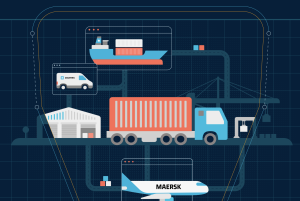South Africa ranked 20th out of 160 countries in the LogisticsBarometer2016 and is classified as a logistics over-performer when compared with its peers on the logistics performance index (LPI), which provides a comprehensive measure of the efficiency of international supply chains.
Unlike other countries on the African continent, South Africa’s logistics industry has the advantage of a more-developed transport infrastructure, says Friedel Spies, Business Development Director at ID logistics South Africa, in this month’s SmartProcurement.
Although investment in rail, port and road infrastructure is an ongoing process, a well developed transport system provides seamless operations for moving various goods to the correct destination at the right time in order to satisfy the needs of the customer, says Spies.
Cost drivers
Transport costs are the dominant contributor towards logistics costs, amounting to 57% of 2014’s logistics costs, followed by inventory carrying costs at 15.2%, warehousing at 14.6% and management and administration costs at 13.5%. The contribution of transport costs to total logistics costs is expected to decline to 55% in 2016 owed to lower fuel prices (fuel costs made up 40% of road transport costs in 2014). This is the lowest contribution level it has reached since 2010, said the 2016 Barometer.
Alongside the quality of the transport system, fuel consumption plays a significant role. Highlighted in the CSIR’s State of Logistics Survey, fuel costs are by far the most significant and volatile cost driver in transport (and therefore logistics) costs.
Despite expectations that the crude oil price may decrease in the short term, South Africa’s diesel price is heavily dependent on the currency exchange rate and additional levies added to the base price of fuel (the CSIR’s own scenario modelling has demonstrated the sensitivity of overall logistics costs to changes in the exchange rate and crude oil price).
Instead of trying to control economic drivers outside the industry’s reach, changes should be made to reduce the overall demand for fuel and support initiatives to most effectively service the relevant markets and customers.
Innovation
According to Spies, there is a need for innovation and a level of alignment between logistics service providers, customers and the retail sector.
“There are still opportunities to improve or to reduce some of the inefficiencies that exist within supply chains. This calls for more collaboration between all parties to address these issues.”
However, beyond increased collaboration within supply chain management, specialist logistics companies require the latest technologies to efficiently and timeously service their customers. Pivotal to success are technologies such as automated replenishment systems, just-in-time software, route planning capabilities and, ultimately, user-friendly business intelligence information,” adds Spies.
Skills development
The transport and logistics industry has been addressing the lack of skilled labour, which is affecting processes of the supply chain. According to the State of Logistics Survey, there is a gap in terms of ‘soft’ skills and practical exposure. Compared with other BRIC countries, the quality of South Africa’s tertiary degrees in the field is on par, but membership of industry associations and professional certifications lag behind. This indicates that a critical gap can be filled by organisations such as SAPICS, CIPS and SmartProcurement that provide platforms for industry exposure, networking, knowledge sharing and professional certification.
“Limited exposure to the transport and logistics industry plays a critical role in skills shortage. Not many learners are exposed to this industry, which has a wide variety of disciplines and career opportunities,” comments Spies.
This is why organisations and associations that educate and communicate with the industry and institutions are crucial. Many logistics companies have put in place effective internship programmes and are offering in-house training to their employees, as well as study assistance. With a skilled work force using specialised processes and leveraging innovations, the logistics industry in South Africa will mature and further the competitive edge for all parties.



























